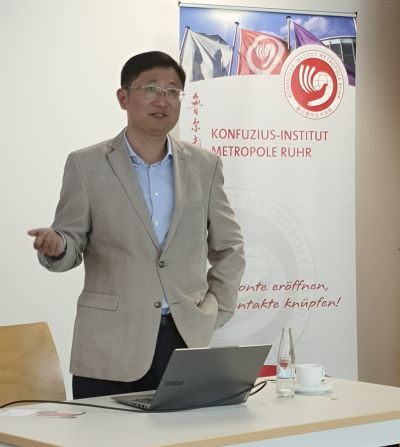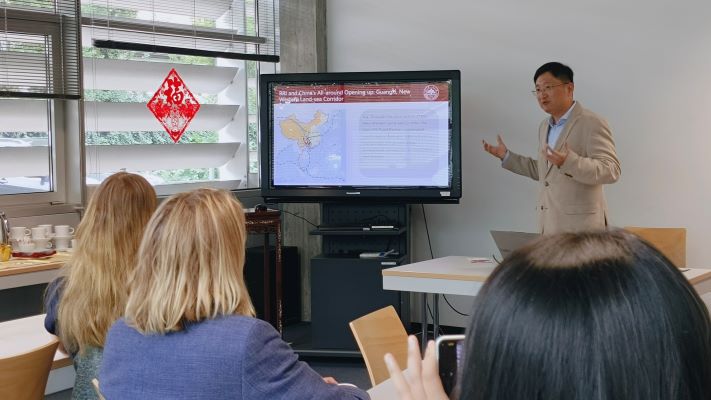At lunch time on September 17, 2024 an interested audience gathered at the Confucius Institute Metroplis Ruhr for the talk of Prof. Li Yuan, PhD of Shandong University titled „High-Standard Opening-up and High-Quality BRI Development“. The lecture revolved around China’s Belt and Road Initiative (BRI) and its strategic evolution, particularly focusing on how high-standard opening-up and high-quality development are shaping the initiative’s future. Prof. Li offered an overview and explained Chinese government policies and linked them to China’s broader developmental goals.

The “Shekou Model” as the Foundation for BRI
A key part of Prof. Li’s presentation was his explanation of the Shekou model as a foundational framework for the BRI. The Shekou model, based on the transformation of Shekou, a district of Shenzhen, into an innovative economic zone, promoted openness, international cooperation, and pragmatic governance. Prof. Li highlighted that the Shekou experience in economic openness, regulatory innovation, and international engagement served as a model for the BRI’s cross-border infrastructure, trade, and investment initiatives.
Prof. Li delved also into the concept of high-quality development – a central pillar of China’s current domestic and international strategies, including BRI. Unlike rapid or extensive growth, high-quality development aims at increasing sustainability, innovation, inclusivity, and environmental responsibility. High-standard opening-up, Prof. Li explained as not just a concept about economic liberalization but about building a rule-based and sustainable framework for China’s participation in the global economy. It also underscores China’s willingness to engage with other economies on an equal footing, ensuring mutual benefits through fair and open competition.

The audience engaged in discussion with Prof. Li especially among others about the question of competition between BRI and other global initiatives such as European Global Gateway Policy.
